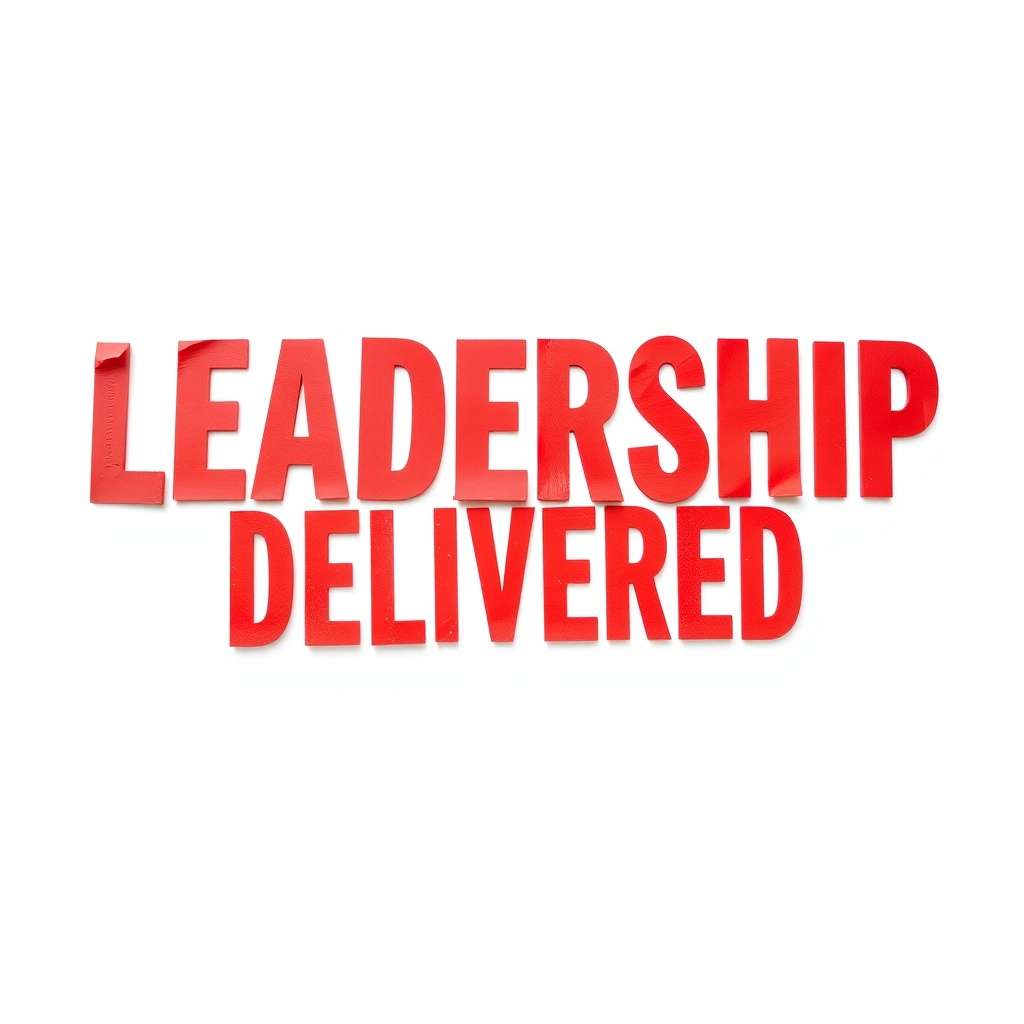1) Model & Principles
Geopolitics Leadership = Intelligence × Compliance × (Resilience + Optionality)
- Intelligence — structured signals → scenarios → decisions
- Compliance — sanctions/export controls/beneficial ownership (no evasion)
- Resilience — diversified revenue & supply; buffers; crisis playbooks
- Optionality — alt suppliers, routings, payment rails, legal entities
2) Diagnostic Rubric (score 0–10)
Governance & Compliance
- 0–2: Ad-hoc checks; no list sync
- 3–4: Basic OFAC/EU screening, manual
- 5–6: Automated screening; BO look-through
- 7–8: Export control classification; holds workflow; audits
- 9–10: Global lists, PEP/adverse media, training & SLAs
Exposure Concentration
- 0–2: 1–2 countries = >70% revenue/supply
- 3–4: HHI > 2500 (high concentration)
- 5–6: HHI 1500–2500
- 7–8: HHI < 1500; backup suppliers
- 9–10: HHI < 1200; tested switch plans
Early Warning & Scenarios
- 0–2: News-driven; no thresholds
- 3–4: Manual tracking; no triggers
- 5–6: Core signals; 3 scenarios w/ probabilities
- 7–8: Thresholded alerts; playbooks
- 9–10: Continuous sensing; monthly drills
Crisis Readiness
- 0–2: No escalation matrix
- 3–4: Roles defined; no drills
- 5–6: Levels 1–5; comms templates
- 7–8: Quarterly drills; vendor alignment
- 9–10: Cross-border playbooks; 24/7 on-call
3) 12-Month Roadmap
Q1 — Baseline
- Compliance reset (lists, BO, ECCN, holds)
- Exposure map (revenue/supply by country; HHI)
- Signals & thresholds; 3 scenarios
Q2 — Fortify
- Alt suppliers/routes; payment rails options
- Commodity pass-through clauses
- Level 1–5 crisis matrix + drill
Q3 — Diversify
- Reduce HHI below 1500
- Run scenario war-game
- Quarterly compliance audit
Q4 — Lead
- Annual multi-crisis exercise
- Board dashboard cadence
- Optionality playbook refreshed
4) 90-Day Sprint
Days 1–30
- Sync sanctions lists (US/EU/UK)
- BO look-through ≥25% ownership
- Build exposure table & HHI
Days 31–60
- Set 5 core signals + thresholds
- Draft 3 scenarios (+EV impact)
- Insert pass-through clause templates
Days 61–90
- Drill Level 3 crisis
- Qualify 2 backup suppliers
- Board review of dashboard
5) Operating System (weekly)
- Mon: Signals review → any thresholds crossed?
- Wed: Mitigation workstream update (supply, legal, finance)
- Fri: Risk dashboard to execs + next steps
6) Metrics That Matter
- HHI (exposure concentration) — lower is better
- Time-to-Decision (from signal to action)
- Compliance coverage (% screened, BO resolved)
- Scenario EV impact (€ / margin points)
- Drill readiness (time, gaps resolved)
7) Scripts & Templates
Supplier diversification (email)
Board update (one-pager)
8) Interactive Tools
9) Risks & Anti-Patterns
- Sanctions/controls evasion (illegal) — never do this
- No BO look-through — hidden exposure
- High HHI — revenue/supply concentration
- No pass-through clauses — margin erosion
- Decision lag — signals without thresholds
10) Next Steps & CTA
Now: Run the tools above (risk, HHI, sanctions, early-warning, scenarios, pass-through, crisis).
Then: Pick one 30-day booster and set the weekly cadence.
RapidKnowHow + ChatGPT turns expertise into action in minutes. Our Leadership Delivered System makes best practice the default, standardizes results across teams and geographies, and scales impact through licensable, partner-ready tools—so your organization leads faster, clearer, and at lower cost.
The RapidKnowHow + ChatGPT Leadership Delivered System compresses time-to-insight to minutes, aligns teams on what to do next, and scales your edge via licensable, partner-ready playbooks across sectors and regions.- Josef David
Strategy & Positioning
- ICP — Ideal Customer Profile: the type of company or buyer you serve best (e.g., “mid-market industrials in EU”).
- GTM — Go-to-Market: how you win customers (channels, funnel, coverage).
- CTA — Call to Action: the concrete next step you ask for (e.g., “Book a 30-min fit call”).
- NPS — Net Promoter Score: loyalty metric from −100 to +100 based on “recommend?” survey.
Problem-Solving & Prioritization
- MECE — Mutually Exclusive, Collectively Exhaustive: structure issues so items don’t overlap and cover the whole problem.
- ICE — Impact × Confidence ÷ Effort: quick way to rank initiatives by payoff versus difficulty.
- RICE — Reach × Impact × Confidence ÷ Effort: prioritization adding “how many affected” (Reach).
- H1 / H2 / H3 — Hypotheses 1/2/3: statements you test to explain the outcome gap.
- A/B — A/B Test: run version A vs B to see which performs better, statistically.
Finance & Economics
- ROI — Return on Investment: (benefit − cost) ÷ cost; we also use “12-month ROI”.
- EV — Expected Value: price or fee × win probability (used in proposal economics).
- EBIT — Earnings Before Interest & Taxes: operating profit measure; often a target KPI.
- TCO — Total Cost of Ownership: full cost to build or buy (setup + run + maintenance).
- KPI — Key Performance Indicator: the success metric you’re aiming to move (e.g., “gross margin +3 pts”).
AI, Data & Platforms
- MLOps — Machine-Learning Operations: deploy, monitor, retrain and govern models safely.
- CI/CD — Continuous Integration / Continuous Delivery: automated build, test and deploy pipeline.
- PII — Personally Identifiable Information: data that can identify a person; needs special handling.
- RBAC — Role-Based Access Control: users only see data and tools allowed by their role.
- Model Registry — System of record for model versions and approvals.
- Drift — Model/data performance shift over time; requires monitoring and retraining.
- GenAI — Generative AI: systems that create text, images, code, etc., from prompts.
Sales, Pipeline & Delivery
- CRM — Customer Relationship Management: system to track contacts, deals and activities.
- Win Rate — % of qualified opportunities you close (not an acronym, but core metric).
- PMO — Project Management Office: function that governs large projects and portfolios.
Planning & Cadence
- Q1 / Q2 / Q3 / Q4 — Calendar or fiscal quarters (3-month blocks).
- FY — Fiscal Year: your accounting year (e.g., FY2026).
- v1 — Version 1: first working release you ship to users (“prove value fast”).
- Sprint — Fixed timebox (often 1–2 weeks) to build and ship increments.
Commercial Packaging & Offers
- Pilot — Small, time-boxed engagement to prove value and de-risk a larger rollout.
- Tiered Offer — Three options (e.g., Pilot / Core / Flagship) to match scope and price to value.
- Risk Reversal — Mechanism that reduces buyer risk (e.g., milestone-based fees or opt-out gates).
Governance & Compliance
- SLA — Service-Level Agreement: commitments on availability, quality or timeliness.
- Audit Trail — Record of who changed what and when (models, data, access).
- Guardrails — Technical and policy limits that keep AI use safe and compliant.
Geopolitics — Short-Forms Glossary
Core ideas
- IR — International Relations: how states and actors interact.
- Great-Power Competition (GPC) — Rivalry among top states for influence.
- Realpolitik — Power-first, pragmatic statecraft over ideals.
- Balance of Power (BoP) — States align to prevent any one from dominating.
- Multipolarity — Several major powers (vs. uni- or bi-polar orders).
- Rules-Based Order (RBO) — Norms/institutions guiding state behavior.
- Spheres of Influence — Regions where a power seeks primacy.
Power & influence
- Hard Power — Military/economic coercion.
- Soft Power — Attractiveness of culture, values, policy.
- Sharp Power — Manipulative influence (disinfo, interference).
- Smart Power — Blending hard and soft tools.
- Statecraft — Full toolkit of national power (DIME: Diplomatic, Informational, Military, Economic).
Alignment & strategy
- Alliance — Formal defense pact (e.g., NATO).
- Coalition — Ad-hoc group for an issue/operation.
- Bandwagoning — Aligning with the strong to gain favor.
- Balancing — Aligning against a stronger rival.
- Hedging — Keeping ties with competing blocs to reduce risk.
- Non-Alignment — Avoiding formal blocs; strategic autonomy.
- Thucydides Trap — Rising vs ruling power conflict risk.
Economic statecraft
- Sanctions — Restrictions to coerce (trade, finance, travel).
- Secondary Sanctions — Penalties on third parties dealing with a target.
- Export Controls — Limits on tech/goods transfers.
- Embargo — Broad trade ban with a country.
- SWIFT Cut-off — Removing banks from global messaging rails.
- Capital Controls — Limits on money flows across borders.
- Sovereign Debt Restructuring — Renegotiating a state’s debt burden.
- De-risking / Decoupling — Reducing exposure to a rival’s economy.
- Friend-shoring / Near-shoring — Moving supply chains to allies/nearby.
Trade & institutions
- WTO — World Trade Organization (rules, dispute settlement).
- MFN — Most-Favored-Nation tariff status.
- FTA — Free Trade Agreement (bilateral or regional).
- Anti-Dumping — Duties against below-cost imports.
- ITAR/EAR — US export control regimes for arms/dual-use tech.
- Extraterritoriality — Laws applied beyond national borders.
Energy & resources
- OPEC+ — Oil producers’ coordination group.
- Petrodollars — Oil trade revenues held in USD assets.
- Energy Security — Reliable, affordable, sustainable supply.
- Critical Minerals — Lithium, cobalt, REEs, etc., vital for tech/energy.
- Strategic Reserves — Stockpiles (oil, gas, grains, minerals).
- Pipeline Politics — Influence via cross-border energy routes.
Maritime & territory
- UNCLOS — UN Convention on the Law of the Sea.
- EEZ — Exclusive Economic Zone (200 nm resource rights).
- FONOPs — Freedom of Navigation Operations.
- A2/AD — Anti-Access/Area-Denial (keep adversaries at bay).
- Chokepoint — Narrow route critical to trade (e.g., Hormuz, Malacca).
- Lawfare — Using legal claims/processes as a strategic tool.
Security & conflict
- Deterrence — Preventing action by threat of costs.
- Escalation Ladder — Steps from diplomacy to full conflict.
- Hybrid Warfare — Mix of military, cyber, economic, info tools.
- Gray-Zone — Coercion below conventional war thresholds.
- Article 5 (NATO) — Collective defense clause.
- R2P — Responsibility to Protect (mass-atrocity norm).
- Counter-insurgency (COIN) — Defeating armed non-state actors.
Nuclear basics
- MAD — Mutually Assured Destruction (nuclear stalemate).
- First-Strike / Second-Strike — Initial nuclear attack vs. assured retaliation.
- Nuclear Triad — Land-based missiles, submarines, bombers.
- Non-Proliferation (NPT) — Treaty to prevent nuclear spread.
Diplomacy & mediation
- Track I / Track II — Official vs. unofficial diplomacy.
- Backchannel — Discreet negotiation route.
- Confidence-Building Measures (CBMs) — Steps that reduce miscalculation.
- Demarche — Formal diplomatic protest or request.
- Summitry — Leader-level meetings to break deadlocks.
Information & cyber
- OSINT — Open-Source Intelligence.
- HUMINT/SIGINT/GEOINT — Human/Signals/Geospatial intel.
- IO / PsyOps — Information operations / psychological ops.
- Misinformation/Disinformation/Malinformation — False/intentional/true-but-weaponized info.
- Cyber Deterrence — Preventing attacks via punishment/denial signals.
Law & global bodies
- UNSC / UNGA — UN Security Council / General Assembly.
- P5 — UNSC permanent five with veto.
- ICJ / ICC — UN court for state disputes / criminal court for individuals.
- IHL — International Humanitarian Law (law of armed conflict).
- Sanctions Committee — UNSC panel monitoring compliance.
Regions & groupings (selected)
- NATO — North Atlantic Treaty Organization (defense alliance).
- EU (CFSP/CSDP) — EU foreign/security policy & defense missions.
- BRICS — Brazil, Russia, India, China, South Africa (expanded in 2020s).
- SCO — Shanghai Cooperation Organisation (Eurasian forum).
- QUAD — Australia, India, Japan, US (Indo-Pacific dialogue).
- AUKUS — Australia-UK-US security/tech pact.
- ASEAN — Association of Southeast Asian Nations.
- AU — African Union; continental governance.
Migration & society
- Push/Pull Factors — Drivers that force/attract migration.
- Refugee vs. IDP — Cross-border vs. internally displaced persons.
- Diaspora Politics — Home-country influence via communities abroad.
- Demographic Dividend — Growth boost from a young workforce.
Finance & currency
- Reserve Currency — Widely held currency for trade/savings.
- Swap Line — Central-bank liquidity backstop.
- SDRs — IMF Special Drawing Rights (reserve asset).
- De-dollarization — Reducing reliance on USD in trade/finance.
Risk & compliance
- Country Risk — Combined political, economic, security risk.
- Expropriation — State seizure of private assets.
- Force Majeure — Uncontrollable event clause in contracts.
- Political Risk Insurance (PRI) — Coverage for sovereign/instability risks.
- Sanctions Screening — Checking entities against restricted lists.





